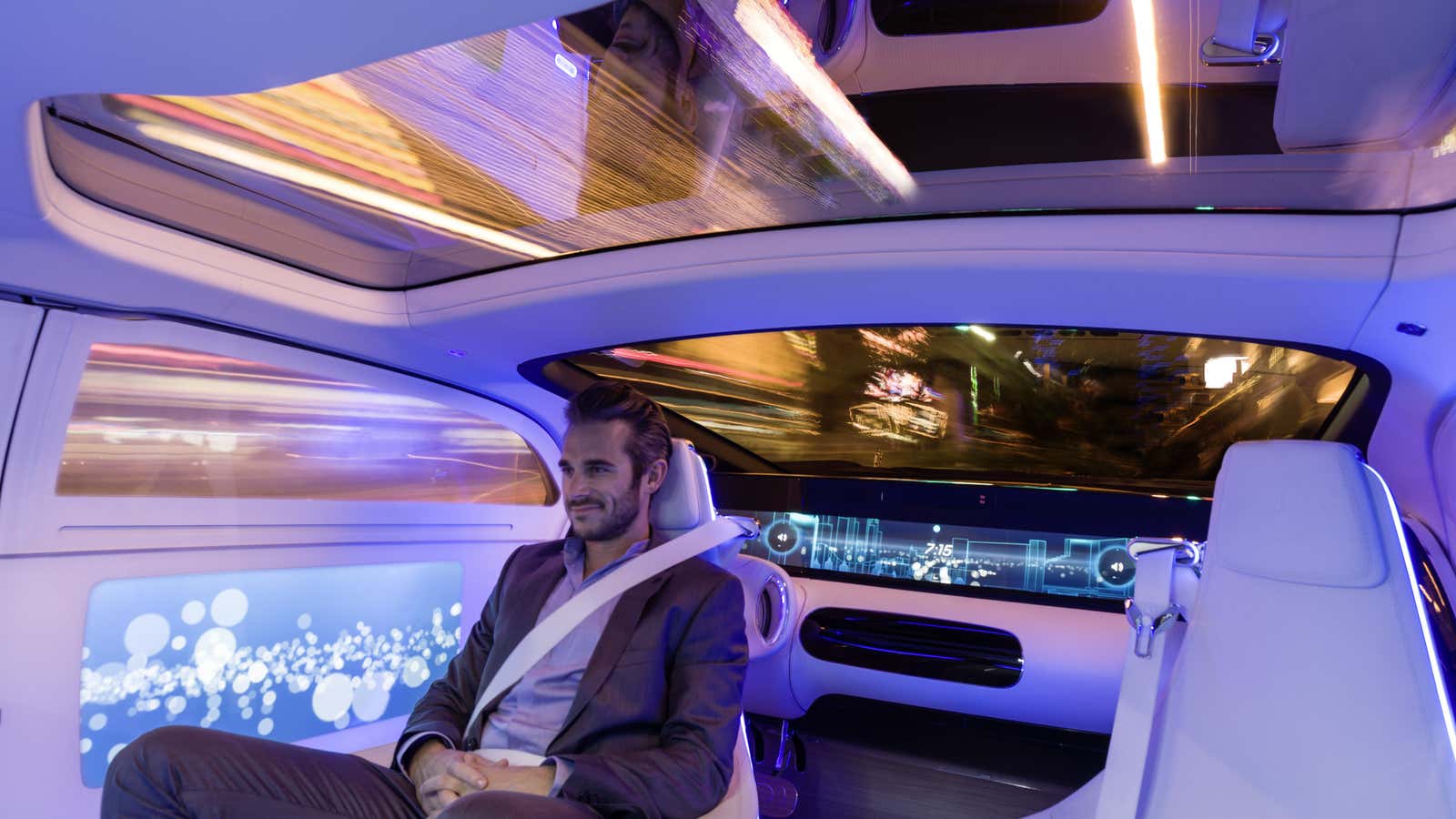With trillions of dollars potentially at stake, Silicon Valley has rushed into the latest commercial rage: to dominate personal transportation with robot cars. While the valley’s most hallowed high-tech names, the self-described industry disruptors—Apple, Google, Tesla, Uber—have attracted most of the attention, they appear to be flailing at execution, and hyping their capabilities.
The names to beat, at least at this juncture, are supposedly dowdy incumbent carmakers such as GM, BMW and Volvo.
“Silicon Valley companies are finding that technological and financial disruption of the automotive industry is not straightforward,” said Raj Rajkumar, an expert on self-driving technology at Carnegie-Mellon University, who consults for GM.
Robot cars currently do not exist, although futurists and nearly everyone else says that’s how we will be getting around in the years ahead. The timing of this new age is disputed. It ranges from just a few years in the future to much later in the century. Yet nearly everyone seems sure that it is coming. The only question has been who will be first and earn the most of what Morgan Stanley estimates will be a $10 trillion-a-year industry.
If you watched the hoopla the last few days out of Pennsylvania, you would be forgiven for thinking that self-driving is here, and the one to beat is Uber. That’s because the ride-hailing company managed to lure much of the US tech press corps to Pittsburgh, where, one by one, they were driven around in four Ford Fusions outfitted with autonomous functionality.
But none of the cars was really self-driving; all required intervention by Uber drivers sitting behind the wheel. Uber is late to the game and ahead of none of the main actors in the self-driving race. And no one has developed a true robot car.
Venerable Apple, after hiring hundreds of specialists to create an autonomous car called the Titan, appears to have abandoned the vehicle, at least for now, and has decided to work only on the underlying self-driving system, according to news accounts.
Bloomberg reports that Google’s self-driving venture is struggling as well. This is notable because Google is the actual first-mover in robot cars, creating a division seven years ago that has thus far driven its self-driving vehicles about 1.8 million miles in and around San Francisco. But Google has suffered the loss of key employees as it refuses to release an almost-robot car, and works on perfecting its technology. The company has never seemed intent on actually building such a vehicle.
For all their street cred, both Google and Apple, don’t have a car to sell. And none of the major carmakers appears to want to do business with them. ”No established carmaker wanted to tie up with Google, since automakers do not want to become commodity makers of vehicle platforms while the juicy information-driven gains accrue to Google,” said Rajkumar. “Change the name ‘Google’ to ‘Apple’ and the situation remains exactly the same.”
Volvo, meanwhile, says it will put a fleet of 100 self-driving cars on the road for testing next year; a mainstream commercial rollout will probably be years later. BMW says it will sell autonomous cars by 2021.
GM is about to launch the first mainstream-priced electric car that can go more than 200 miles on a charge. The $37,500 Bolt, which has won rave reviews, will go 238 miles before requiring recharging, according to its official US government rating. Later, the Bolt will go autonomous–GM is already testing self-driving Bolts around San Francisco. High-end Teslas can go further, but they cost tens of thousands of dollars more.
Tesla remains an outlier, a crossover between Silicon Valley and the carmakers. That has resurrected now years-old talk: Apple or Google should buy Tesla.
